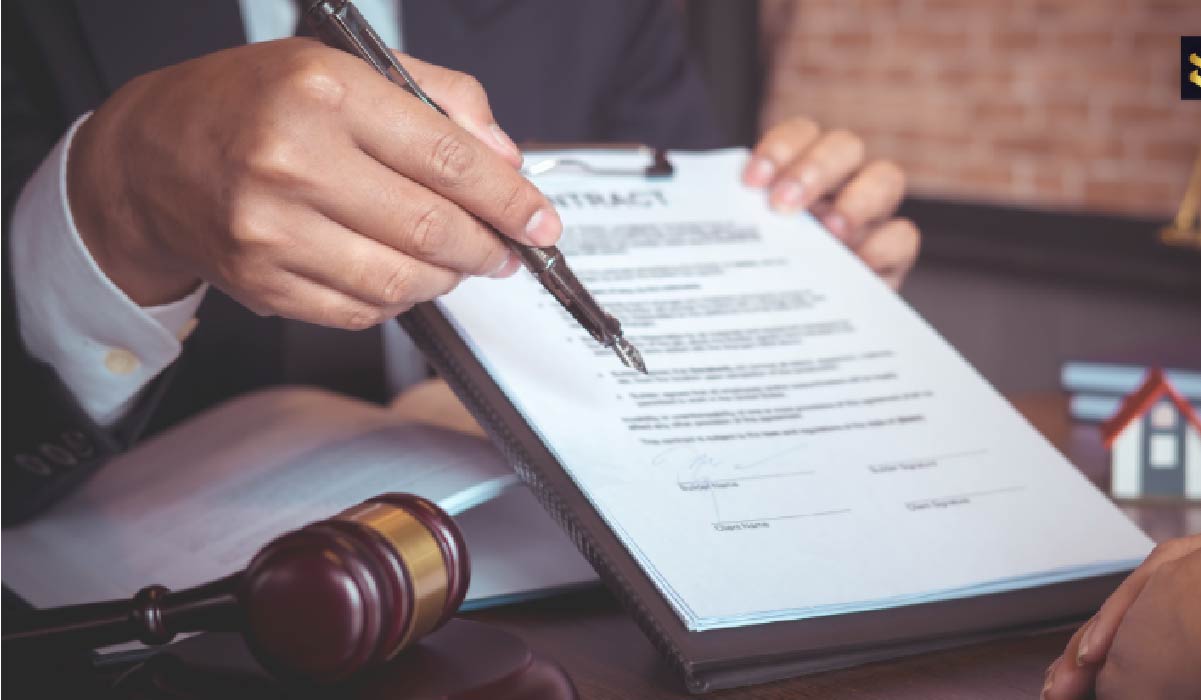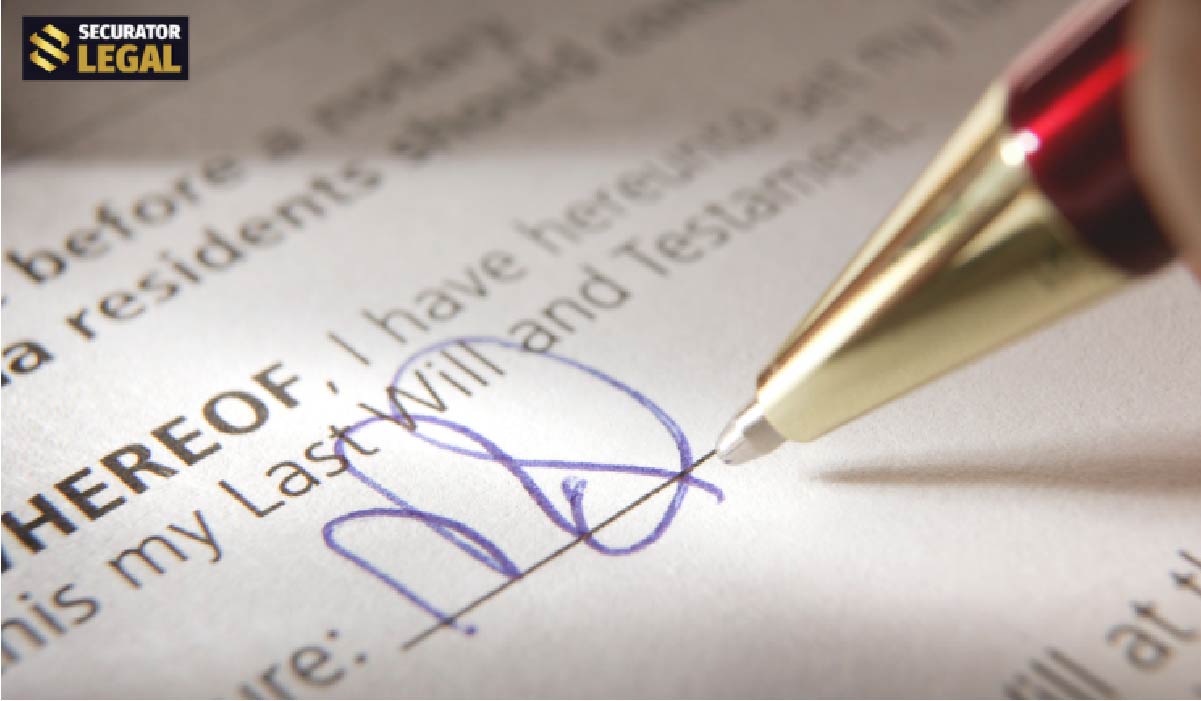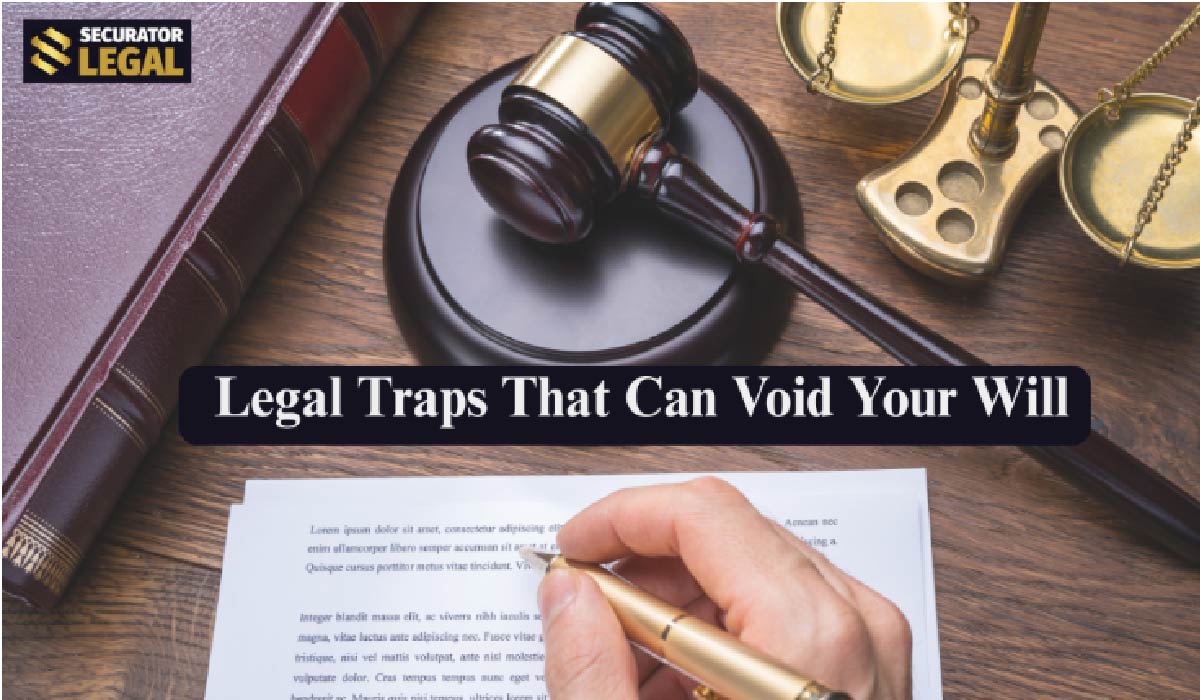Do you believe a signed will equals absolute protection for your loved ones?
Most people do. At Securator Legal, we help families with succession law and commercial disputes, so we see what happens when wills go wrong. The truth is, small mistakes can completely overturn what the testator intended.
Your will needs two witnesses to sign it, but if even one of them benefits from it, the entire document becomes invalid.
There are many such legal loopholes that catch families off guard. Let’s look at these hidden traps and see how you can keep your will legally valid.
Common Technical Errors That Threaten Your Will’s Validity
Making a valid will seems straightforward, but tiny technical mistakes turn carefully written documents into useless papers. These errors leave families facing expensive legal battles and mistakes that could have been avoided.

Here’s what you need to know.
The “two witnesses” rule
Firstly, your will needs two witnesses who must be completely independent from your document. This means they can’t benefit from your will or be married to someone who does. When your witness stands to inherit something, they’re automatically disqualified. This issue can actually make your entire will worthless.
Signing mistakes
The signing process itself creates another potential problem. You must sign your will while both witnesses watch you do it. If you don’t sign while both witnesses watch, your will becomes legally useless.
Poor signature placement causes similar problems. Even something as simple as witnesses using different coloured pens raises questions about whether the signing actually happened properly.
Improper witnessing procedures
Now, your witnesses also need to see you sign the document in person. For this reason, video calls were temporarily allowed during COVID to witness wills, though strict rules applied. The witness has to see you sign in real time on the video call. If they can’t clearly see the moment you sign, the witnessing doesn’t count.
Dangers of DIY Kits
No, there’s no such thing as a template for a will that covers everything you need. Many DIY wills try to give away assets you don’t fully own, like jointly held property or company assets. They also skip over important rules about superannuation, which doesn’t automatically follow your will.
Effect on your estate
When courts declare your will invalid, your residuary estate falls under harsh intestacy laws (i.e., rules for dividing assets without a valid will). These laws ignore your personal wishes completely and distribute assets based on rigid family rules. So, your spouse could get everything if your estate is small, but larger estates can be split between spouses and children in ways you never wanted.
Now, there’s another serious issue that can wreck your will, even if you did everything by the book. Yes, it needs its own section, so hang tight.
How Capacity and Influence Can Lead to Invalid Wills
A will can be technically perfect but still get challenged if there are doubts about the person’s mental state when they signed it. These mental capacity issues create some of the most expensive family disputes in Australian courts.

Testamentary capacity explained
A will requires that you understand exactly what you’re doing when you sign it.
Courts use an old test from 1870 that checks four things:
- Do you understand what a will does?
- Do you know roughly what you own?
- Do you recognise who might have claims on your estate?
- Can you make sensible decisions without being confused by delusions?
This test is purely legal. So, someone might have dementia but still pass the testamentary capacity test during a lucid moment.
Mental capacity at the time of signing
When it comes to capacity questions, the timing can change the outcome. The first thing you need to understand is that courts only care about your mental capacity at the exact moment you signed the will (not weeks before or after).
Conditions like dementia make this tricky because they create natural vulnerabilities. These conditions don’t automatically make your will worthless, but they often give disappointed family members grounds to launch legal challenges.
Undue influence
Vulnerable people face another serious problem through what we call undue influence. This happens when someone with power over you pressures you into changing your will, and the line between advice and pressure can be thin.
So courts will check for actual bullying or force. But if the person is in a vulnerable state, minor pressure can still make the will legally invalid.
Family disputes
Children, spouses, and other relatives often challenge wills by arguing that there were problems with capacity or undue influence. These disputes usually begin when someone is left out completely or gets less than they expected.
Now, while the challengers have to prove their case, all they need to do is raise a reasonable doubt about whether you were thinking clearly or acting freely when you signed.
Gathering evidence
Protecting your will requires building strong evidence of your capacity and independence, including medical records from your doctor, detailed notes from your lawyer, and witness statements from those who saw you sign.
The more evidence you gather about your clear thinking, the harder it becomes for family members to successfully attack your wishes in court.
You can avoid most of these problems with professional help, so why risk leaving your family’s future up to chance?
Make Sure Your Will Is Legally Valid
No one wants their final wishes ignored or their family left struggling in legal limbo after death.
Here’s your final checklist from us to reduce risk:
- Always use two independent witnesses who don’t benefit from your will.
- Get your testamentary capacity documented if you’re older or unwell (a simple letter from your doctor helps).
- Most importantly, get professional advice, especially if you have complex family situations, business interests, or valuable assets.
A lawyer can spot potential problems you’d never think of. At Securator Legal, we specialise in creating rock-solid wills that stand up to scrutiny. We’ll help you avoid these costly legal loopholes and ensure your family gets exactly what you intended.













